We all want our children to be healthy, happy and secure. The good news is, there are lots of simple things parents can do to support their children’s mental health and wellbeing.
Tips for supporting your child’s mental health
Tip #1: Chat about your feelings
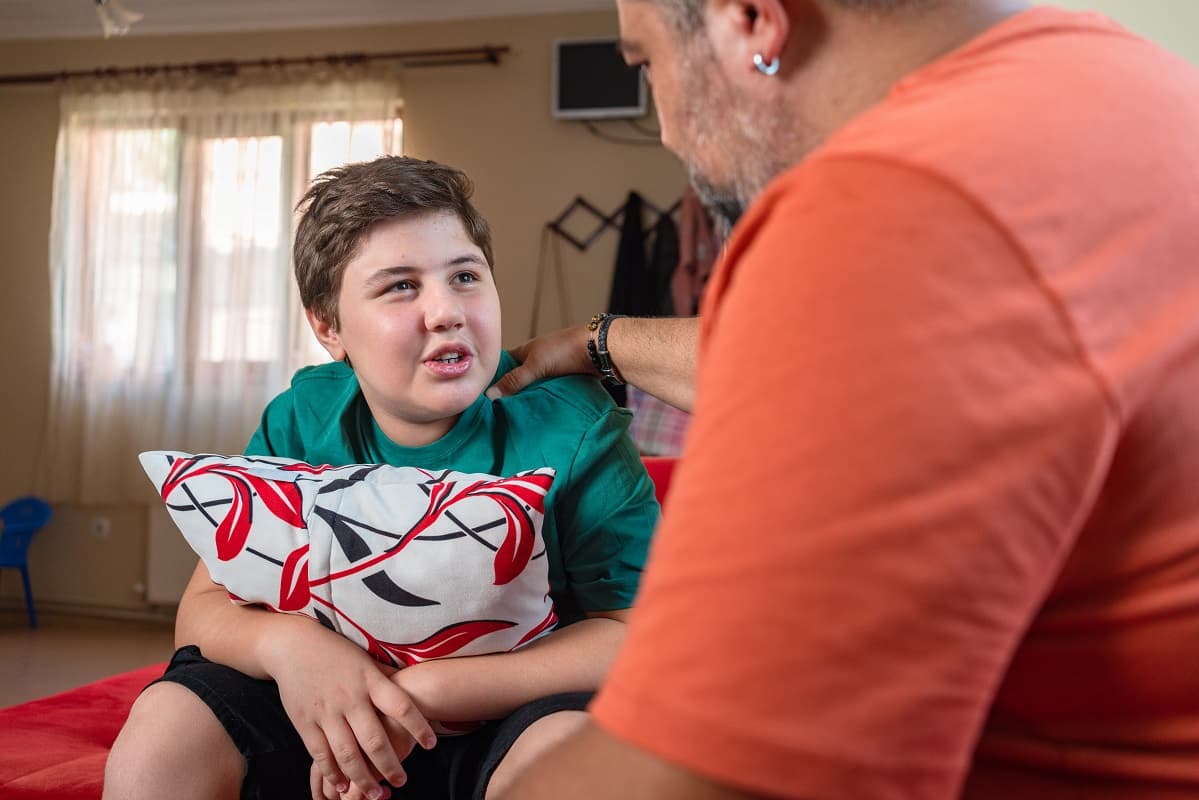
The more we talk about how we feel, the easier it becomes, and the less likely we are to bottle things up and let problems get us down. So it’s a good idea to get into the habit of asking your child how they feel, so they get used to talking about it.
If your child is used to talking to you about how they feel, it’ll make it easier for them to come to you if they feel upset, down or anxious.
Our pages on encouraging your child to confide in you and talking about mental health have lots of tips to help you help them open up.
Tip #2: Keep to a daily routine
Most kids like predictability and routine – it helps them feel safe and secure. Consistent daily habits, like having breakfast together or reading together before bedtime, lets them know what to expect from their day-to-day lives. So try, as much as possible to keep your daily routine predictable and let them know about any significant changes they may not expect.
Tip #3: Set time aside together
As part of your routine, try to set aside regular time for just the two of you. It doesn’t need to be every day. Let them choose something fun or relaxing for them. Spending time together will help them feel loved and secure, and will also give them a chance to talk to you about any worries they may have. Children and young people are more likely to chat when they are doing a parallel activity with you, like driving in the car, doing a craft, or playing a board game.
Tip #4: Try and keep them active
Getting outdoors and burning off energy will do wonders for their mood – and yours! Whether it's a family walk, a trip to the park or an exercise video online, it's important that they keep active. If you have a garden, let them play outside as much as possible. You'll find lots of ideas for getting out and getting active here.
Tip #5: Let them play
It might not seem like it when they’re being noisy and making a mess, but playing is a really important thing for your child’s mental wellbeing. Playing is a crucial part of how children’s minds develop and how they make sense of the world around them. Giving them the space to play and to let their imaginations run wild will help them cope with challenges and keep them emotionally and physically healthy.
Our page on helping your child through play has more information.
Tip #6: Spend time with family and friends
Spending time with people we love is another good way to boost everyone’s mood. It doesn’t need to be a fancy day out – just a meet up in the park, a drive together, or a telly night together will help everyone feel connected.
Tip #7: Support their interests
It’s great to take an interest in the things your child loves – even if they seem boring to you! So try to encourage them to explore their interests and try new things you think they’ll like.
Tip #8: Encourage them to join in
Most kids like to experiment and try new activities so give them safe opportunities to be creative and adventurous. Things like joining a club, being creative and taking part in sports are great ways for kids to make friends, express themselves and keep active. So you could ask them if there are any clubs or activities they’d like to try. If not, try suggesting some that fit with the things they’re interested in.
Tip #9: Give them something to look forward to
Everyone needs something to look forward to. If the kids know something fun is coming up at the weekend, it could make the week easier for everyone. This could be as simple as their favourite meal for dinner, some special time with you, or a catch up with their pals.
Tip #10: Let them make decisions
Giving the kids some control lets them know you trust them, and helps make them feel more independent. It also helps teach them to make good choices. So where you can, try giving your child some choices over things that affect them, like what they wear, what you do together for fun and how they will manage to do their homework. If they’re younger, it may help to offer them options and let them pick their favourite.
Tip #11: Give them some responsibility
Try giving them some chores. They may not thank you for it, but being trusted to do something will help them feel more independent and in control. And when they do their chores, the feeling of success will help reduce any anxiety. When we accomplish something we can feel happier and this is no different for our children too.
Tip #12: Help build their confidence
There are lots of little things you can do to help build your child’s confidence and self-esteem. Every time you praise them or show you trust them, you’re helping them feel valued and worthy of respect. Our page on helping your child build their confidence has lots more tips.
Tip #13: Be a role model
By taking the time to look after your own mental health and showing your child how to cope with difficult feelings, you’re setting a good example for them. Here are some things you can try:
- Build in time for everyone in the family to do things that boost good mental health, like getting outside and exercising.
- Have a go at some mindful activities like these with your child – they only take 5 minutes!
- Don’t blame yourself if something goes wrong – these things happen!
- Keep calm – if you can feel yourself getting wound up, trying taking a few deep breaths or counting slowly to ten to ground yourself.
- Share positive aspects of your day and how you coped well even if things were hard for you.
- Talk about what qualities people have that you have found helpful, like people being kind.
Tips for supporting your child if they're feeling anxious
In this short film, psychologist Professor Cathy Richards shares her top tips for helping to support your children if they’re feeling anxious.
Signs your child may be struggling with their mental health
All children will go through phases of feeling nervous or worried about things, like starting school, doing exams or meeting new people. And all children get upset every so often. This is totally normal. But there are some signs to look out for. These include if they are:
- finding it harder to concentrate
- not sleeping, or regularly waking in the night
- changes in eating habits like eating too much or too little
- getting tearful or upset regularly
- being clingy (in situations when other children are okay)
- complaining of tummy aches and feeling unwell, or using the toilet often
- getting angry more than usual, and being out of control during outbursts
- constantly worrying or having negative thoughts
- not enjoying things they used to like doing
- avoiding spending time with friends or family
- feeling tense, nervous or 'on edge' a lot
- having panic attacks.
Of course these signs are just a guide. But if you spot any of these signs regularly, or you feel your child’s worries are getting in their way of their day to day life, you might want to get some further help. As a parent you know your child best, so trust your instincts if you feel something may be wrong.
Getting help
Raising kids is a challenge for anyone, and we all need a little extra support sometimes. If you need to talk to someone, a great place to start is your child’s school. Ask to speak to their guidance or pastoral teacher, or school nurse – they’ll know your child and will be able to direct you to support available in your area. You could also talk to your GP, who’ll be able to point you in the right direction for further support.
The NHS Inform website also has help available.
The YoungMinds website has advice and information on helping your children deal with anxiety. YoungMinds also offer a helpline, email and web chat service for parents or carers who are worried about a child or young person’s mental health.
Things you can do to help your child with their mental health
As well as getting support from your child’s school or GP (see ‘Getting help’ above) there are lots of things you can do to help.
Tip #1: Let them know you’re there for them
Your child may not want to talk about what’s worrying them, or they may not even know. But just know you love them and are there for them and on their side will help. Simple things like listening or a hug can help – you do not need to know all the answers or find all the solutions.
Tip #2: Try using an 'anxiety iceberg'
This video from YoungMinds shows you how to create an ‘anxiety iceberg’ with your child, to help you identify what’s bothering them. Helping you child remember that worries can pass and that things can get better gives them hope.
The YoungMinds website has more great tips on how to help your child if they’re feeling anxious.
Tip #3: Use other ways of communicating
If your child doesn’t want to or finds it hard to talk to you face to face, you could try encouraging them to use other methods of communication, like texts, voice notes or even just sending you emojis. Or try going for a drive or walk together, as children can sometimes talk more easily when doing something else.
Tip #4: Don’t dismiss what they have to say
Children can worry about all kinds of things – and sometimes these worries can seem a bit silly to adults. But don’t be tempted to dismiss their worries or fears. Instead, listen carefully to what they have to say and let them know it’s okay to feel that way. Try not to reassure them too much and simply acknowledge you have heard how they are feeling.
Tip #5: Make plans together to tackle their worries
If something is worrying them, they may try to avoid facing it. But this isn’t always helpful in the long run. So if they’re trying to get out of doing something or seem anxious about something, try talking to them about why they don’t like it, what they’re worried about and what you can do to make things better. Taking baby steps to face their fears can help boost their confidence as they grow up.
Tip #6: Help them find ways to cope with their worries
We’ve got lots of tips to help children with their worries here. Older children may also find things like sport, yoga and mindfulness helpful. You can find lots of suggestions on the Anna Freud website.
Tip #7: Let them know they can talk to other people
Your child may find it easier to talk to another trusted adult, like a family member or friend. This can sometimes be hurtful for parents, but try not to let this show. Instead, let them know that it’s good for them talk to someone else they trust. You could also suggest they talk to someone anonymously on Childline or The Mix.
Further information about children's mental health
If you want to find out more about supporting your child’s mental health, there are some free online courses you can try.
For an in-depth look at how you can support your child or teen’s mental health, you can sign up for a free course from NHS Scotland and SilverCloud. You can find out more about the courses available here and sign up for free using the code Scotland2020.

Togetherness Online Learning Pathways cover a range of topics and ages from pregnancy to 19+ years. These pathways are for everyone, and take parents on a learning journey to increase understanding about childhood development, behaviour and wellbeing. This helps build connected relationships, resilience and supports families to thrive. There is even a pathway for understanding your child’s mental health and wellbeing. You can find out more at Togetherness and access the courses for free using the code TARTAN.
 Activities & Play
Activities & Play Behaviour
Behaviour Childcare
Childcare Development & Growing Up
Development & Growing Up Family, Friends & Relationships
Family, Friends & Relationships Feeding Your Baby
Feeding Your Baby Food & Eating
Food & Eating Health & Safety
Health & Safety Mental Health & Wellbeing
Mental Health & Wellbeing Money & Work
Money & Work Online Behaviour & Safety
Online Behaviour & Safety Pregnancy & First Days
Pregnancy & First Days School & Education
School & Education Sleep
Sleep

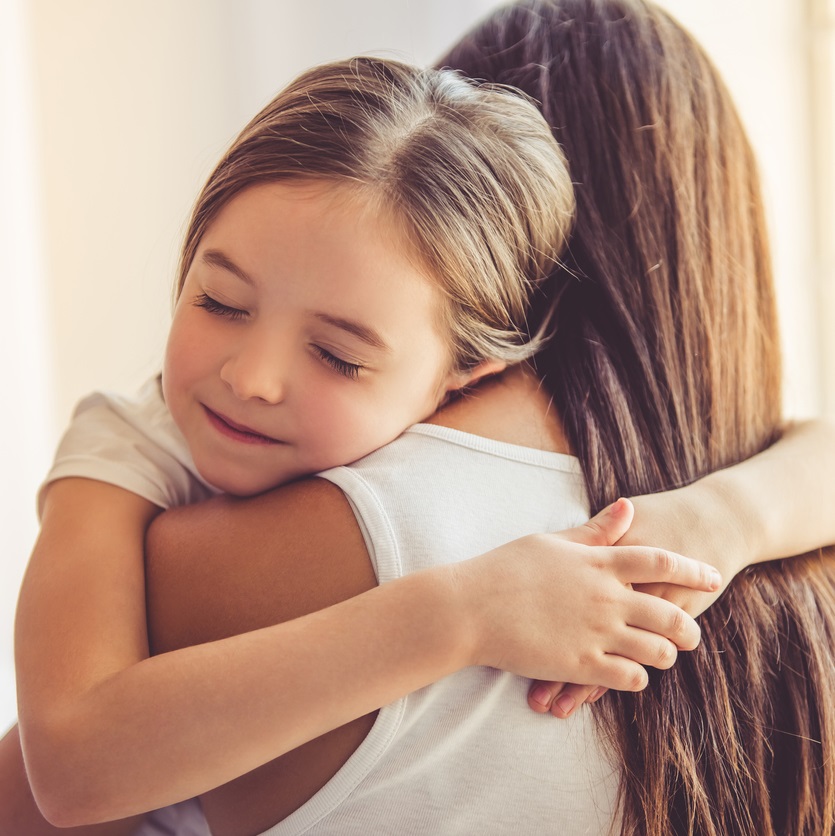
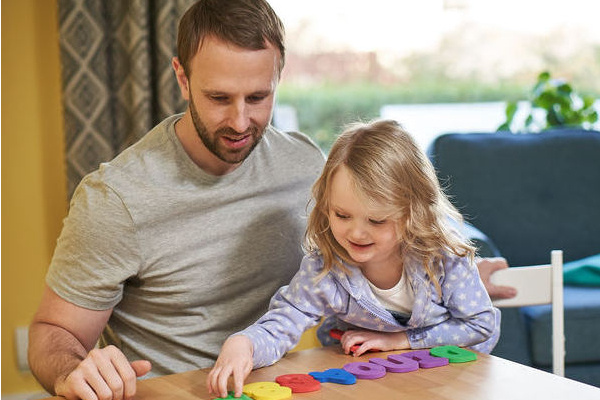
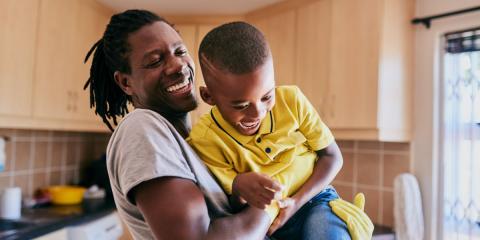
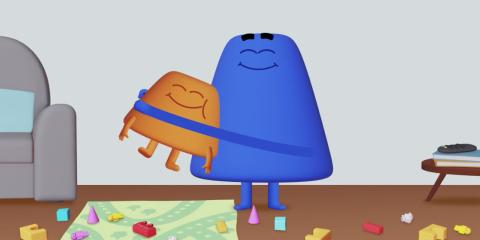
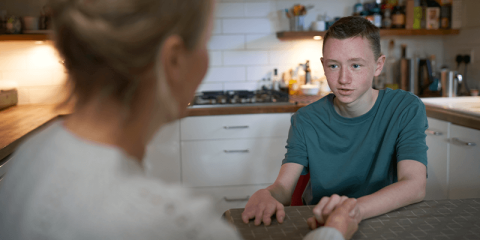





 Behaviour
Behaviour
 Sleep
Sleep